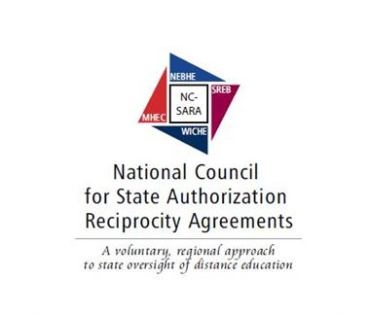

Inspiring the online learning community through new ideas, innovative perspectives, global lessons, and personal stories from OLC members and leaders in the field.
| 1 Comment | May 27, 2014 | Leave a comment
What is SARA?
SARA (State Authorization Reciprocity Agreement) is an agreement among member states that establishes comparable national standards for interstate offering of postsecondary distance education courses and programs. SARA only applies to distance education not on ground or group activities (NCS 3(4) and only focuses on U.S. distance education that crosses state lines. The members of SARA are states not institutions or students. SARA does not replace state authorization and only accredited federally recognized institutions can operate under SARA. SARA pertains to approval of distance education courses and programs offered across state lines by institutions that already have degree authorization in at least one state. States have the option of becoming a member of SARA through their regional compact. There are four regional compacts, including: Midwestern Higher Education Compact (MHEC), New England Board of Higher Education (NEBHE, Southern Regional Education Board (SREB) and Western Interstate Commission for Higher Education (WICHE).
Institutions within in a SARA state with state authorization in own state can also offer distance education courses and/or programs to any other SARA state member.

Short History
The first SARA meeting began in November 2013 and guidelines for the state oversight process continue to evolve. SARA began as a voluntary initiative initially funded by the Lumina Foundation ($2.3 million grant) and going forward will be funded through user fees of participating institutions. Institutions will have to pay an annual fee to SARA participate and the cost is based upon FTE enrollment. Individual States also have the ability to charge institutions a state fee for SARA participation.
As this SARA initiative evolves, policy will be developed around the collection of data from institutions that participate in SARA, and the reporting of complaints lodged against SARA institutions for activities carried out under SARA provisions. Institutions participating in SARA will annually submit data to the National Council for State Authorization Reciprocity Agreements through the NC-SARA website. The data collection process will comply with the Family Educational Rights and Privacy Act (FERPA).
Importance of SARA
According to the NC-SARA website, the Institutional Benefits of SARA membership are:
According to the NC-SARA website, the Institutional Benefits of SARA membership are:
Going Forward Watchlist
– Professional Licensing Considerations
Resource Links for more information:
Sandra Coswatte @SandraCoswatte has worked in higher education over 15 years and currently serves as the Director of the Sloan-C Institute. She has worked with Sloan-C since 2008 in a variety of positions such as workshop facilitation, mentoring, production, and social networking. Former work experience was gained at West Virginia University, Lesley University, Wentworth Institute of Technology, University of Phoenix and Urban College of Boston Sandra has earned a B.A. in psychology and a M.S. in Community Agency Counseling from California University of PA as well as a M.A. in Higher Education Leadership and Administration from West Virginia University.
February 18, 2020 In the early days of online education there were a number of states which did not specifically regulate the online delivery of educational programs to their residents. It seems a reasonable assumption, though not necessarily a fact, that any state which has signed on to SARA has also established regulatory or licensing requirements for out of state institutions delivering online education to its residents who are not SARA institutions. Are you aware of any state which currently does not restrict the delivery of online education to its residents by an non-SARA affiliated institution through separate licensing requirements? Reply

Advancing online education begins with you. Join us for the OLC Accelerate 2024 conference and help shape the future of online, digital, and blended learning.
Orlando, FL | November 18 – 21, 2024